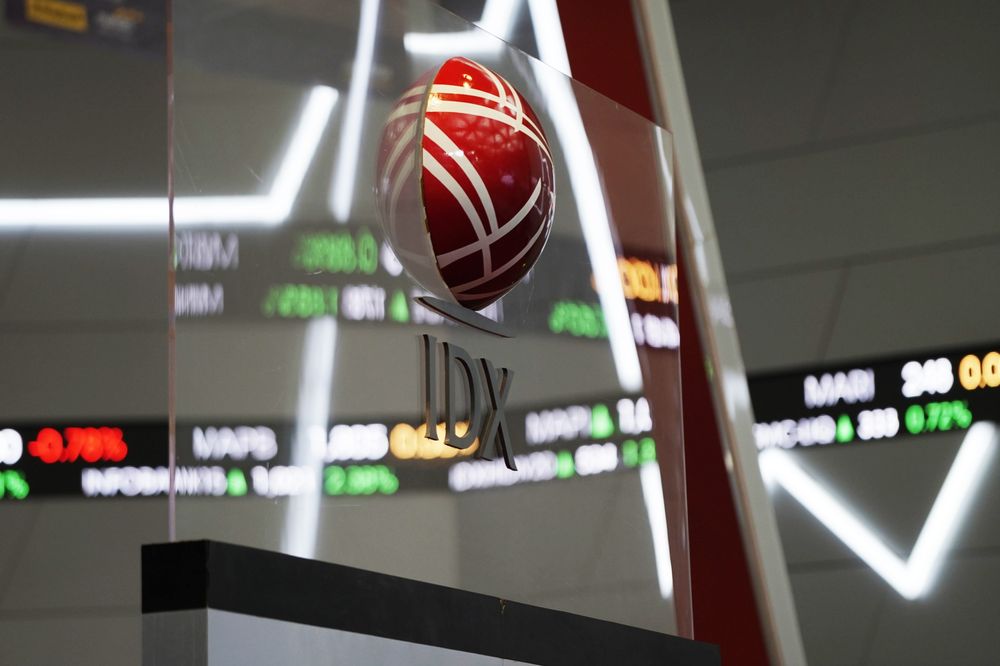Rocked by a political scandal and falling oil prices, Malaysia has been dominating headlines in recent months as the ringgit leads a drop in Asian currencies. That’s taken the spotlight off the economy of neighboring Indonesia, which Standard & Poor’s says is more exposed to capital flight.
“The thing about Malaysia is that the capital market is deeper there, so there’s less reliance on foreign capital among corporates or banks to fund their growth,” said Kyran Curry, S&P’s director of sovereign ratings in Singapore. “Indonesia is much more vulnerable to shifts in outflows and inflows. We’re worried about Indonesia’s foreign-exchange reserves.”
Bank Indonesia’s reserves have fallen almost 9 percent in the six months though August. While that’s less than in Malaysia, Curry says he’s concerned as the monetary authority in Jakarta has recently been “spending a lot to stabilize volatility in the currency.”
The rupiah has weakened 5.1 percent since the end of July, less than half the 12 percent slide in the ringgit, as China’s devaluation of the yuan spurred depreciation in the region.
Indonesian stocks and local-currency sovereign bonds have fallen faster than Malaysia’s over the last three months even though the latter country, a net oil exporter, has been hurt more by the falling price of Brent crude and allegations of corruption against Prime Minister Najib Razak. The government in Jakarta has been buying back its own sovereign bonds and encouraging state-owned companies to purchase their shares to stem declines.
Fund Flows
“The government is doing things and the central bank is working to try and deepen the local capital market but it’s taking a long time to develop,” said Curry. “The capital market in Malaysia is much larger and deeper.”
Indonesia’s benchmark stock gauge lost 16 percent over the past three months, compared with a 9.3 percent drop in Malaysia. The two countries’ local-currency bonds are the only decliners in Asia over the period. Malaysia’s have dropped 0.7 percent and Indonesia’s have fallen 1 percent, according to Bloomberg indexes.
Foreign funds have pulled $467 million from Indonesian shares this year after pumping a net $3.8 billion into the securities in 2014, exchange data show. Some 16.4 billion ringgit ($3.8 billion) has been taken out of Malaysian stocks in 2015, following 6.9 billion ringgit of outflows in 2014. With the highest yields in emerging-market Asia, Indonesia’s local-currency sovereign bonds are popular with overseas investors, who own almost 38 percent of them. The ratio in Malaysia is 32 percent, according to data compiled by Bloomberg.
“Malaysia never had the massive inflows that Indonesia had over the course of the last few years,” said S&P’s Curry.
Neither Indonesia nor Malaysia’s credit ratings are under any immediate threat, he said. S&P is the only one of the three big rating companies that doesn’t rank Indonesia as investment grade, assigning the country its top junk rating of BB+. It assesses Malaysia four levels higher at A- with a stable outlook. Indonesia’s outlook could be changed to stable from positive if macroeconomic imbalances arise or if the current administration’s reform push wanes, Curry said.
Sounder Footing
Malaysia’s economy is on a sounder footing than Indonesia’s, said Stuart Allsopp, head of Asia country risk and financial markets strategy at BMI Research in Singapore. Malaysia recorded a current-account surplus of $1.8 billion in the second quarter at the current exchange rate, while Indonesia posted a deficit of $4.48 billion, official data show. In contrast to Indonesia, Malaysia also has a positive net international investment position, said Allsopp.
“This means that if the dollar strengthens due to Fed rate hikes, Indonesia finds the local-currency value of its external debts have increased, making it more difficult to repay them,” he said. “In the case of Malaysia, its external assets rise concomitantly so the net impact is very little.”
Prime Minister Najib is grappling with allegations of financial irregularities at state investment company 1Malaysia Development Bhd., and facing accusations of impropriety after it was disclosed that more than $600 million of political donations ended up in his private accounts in 2013. Najib denies taking money for personal gain and has counterattacked against what he described as a campaign to oust him, by reshuffling his cabinet and suspending a leading newspaper.
Barclays Plc is recommending clients be underweight Malaysian bonds and is neutral on Indonesian debt, said Rohit Arora, a Singapore-based rates strategist for emerging Asia at the U.K.-based lender.
Maintain Buffers
“We’re equally concerned on both, but looking at the terms of trade and cyclical weakness in commodity prices, then the ringgit looks more vulnerable than the rupiah,” said Singapore-based Arora. Indonesia’s “domestic markets aren’t deep enough, which means it relies more on foreign funding compared with any other market in the region,” he said.
That reliance on offshore funds leaves the country exposed when the Fed starts raising interest rates and if China’s economic slowdown worsens.
At the moment the main risk is central banks “panicking and putting a lot of money into supporting currencies and burning through their reserves,” said S&P’s Curry. It’s important to maintain buffers should the external environment weaken further, he said.


